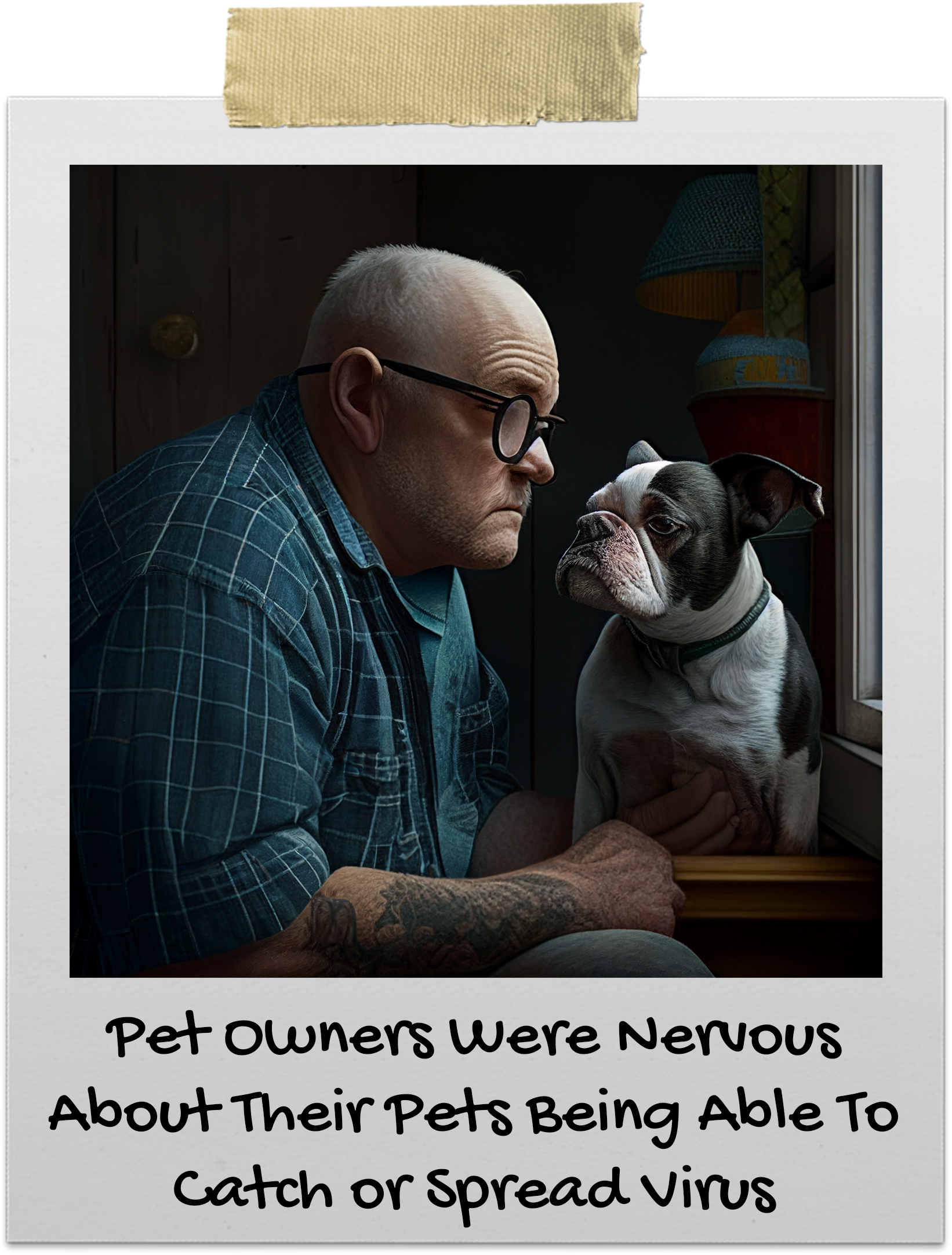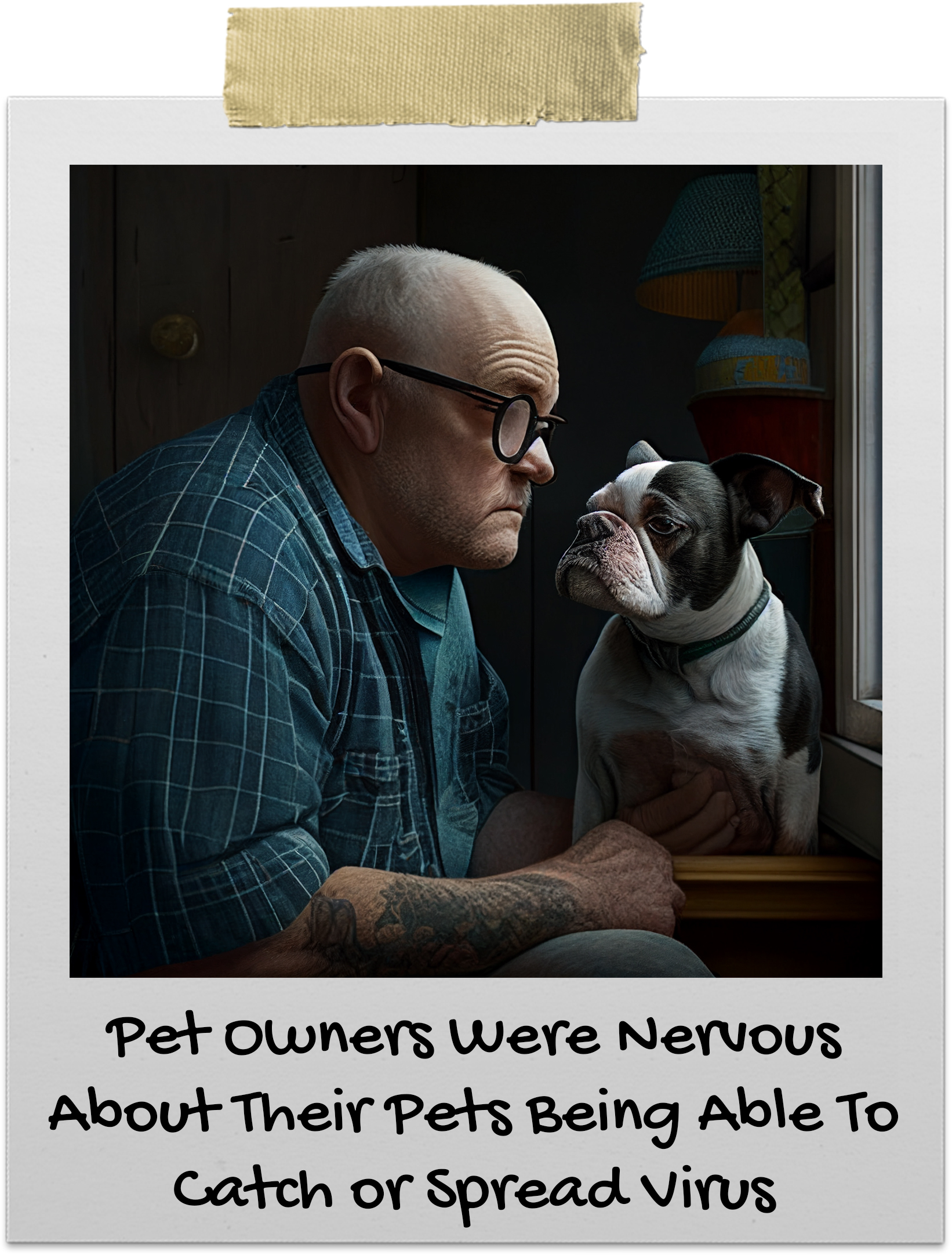Pet Owners Were Nervous About Pets Catching and Spreading Virus


As the COVID-19 pandemic swept across the country, many people found themselves becoming increasingly paranoid about the potential risks and dangers of the virus. And for some people, this paranoia extended to their beloved pets.
The Centers for Disease Control and Prevention (CDC) advised that people who were suspected or confirmed to have COVID-19 should abstain from interacting with animals, such as pets, livestock, and wildlife. COVID-19 infections have been reported in animals worldwide, with most contracting the virus from individuals with COVID-19, including owners, caregivers, or others with close contact. The complete list of animals that can be infected is still unknown, but documented cases include dogs and cats.
At the beginning of the pandemic, there was a lot of uncertainty about whether pets could contract or spread the virus, and this uncertainty led to some people taking extreme precautions to protect their furry friends. Some people went so far as to limit their pets' exposure to others, even going so far as to walk them at off-peak hours or in less crowded areas to minimize the risk of transmission.
Other people went even further, opting to isolate their pets completely and keep them at home for the duration of the pandemic. While this might have seemed like a safe and responsible thing to do, it came with its own set of challenges. For many people, their pets were an important source of companionship and support, and being separated from them for an extended period was a significant source of stress and anxiety.
Despite the uncertainty and paranoia surrounding pets and COVID-19, people needed reminding that the risk of transmission from pets to humans was generally considered to be low. While it was possible for pets to contract the virus, most cases involved close contact with infected humans, and the risk of transmission to humans through casual contact was minimal.



